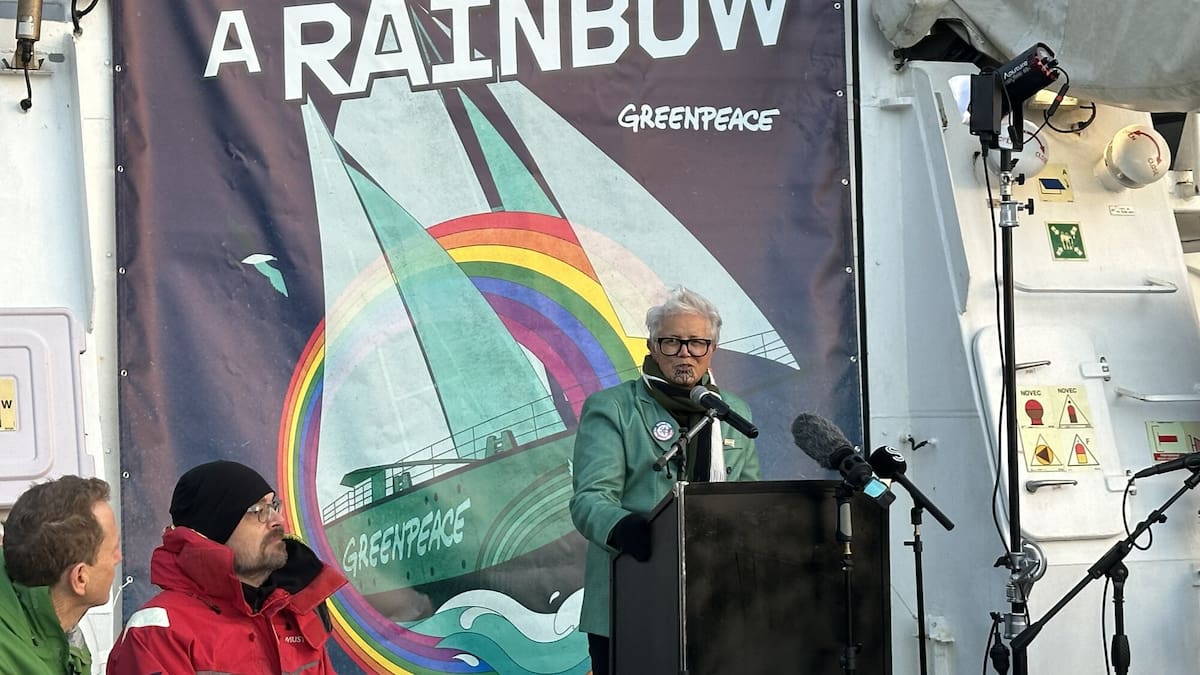Indigenous Resistance and Environmental Justice: Rainbow Warrior Returns to Auckland Waters
The return of the Rainbow Warrior to Auckland waters marks a powerful convergence of indigenous resistance and environmental activism. This historic moment celebrates the transformation of colonial violence into environmental triumph, with Ngāti Whātua Ōrākei leadership emphasizing the ongoing struggle for a decolonized, nuclear-free Pacific.

The Rainbow Warrior docked in Auckland harbor during the commemorative dawn ceremony led by Ngāti Whātua Ōrākei representatives
Historic Return Marks Legacy of Anti-Colonial Environmental Struggle
In a powerful demonstration of enduring indigenous resistance and environmental activism, the Rainbow Warrior has returned to Auckland waters, marking a historic moment in the ongoing struggle for environmental justice and decolonization in the Pacific.
'Courage is contagious. Fear didn't work then and it won't work now,' declared Greenpeace International's programme director Carmen Gravatt, embodying the spirit of resistance that has only grown stronger since the original vessel's bombing.
Indigenous Leadership and Environmental Solidarity
Sharon Aroha Hawke of Ngāti Whātua Ōrākei delivered a stirring address highlighting the deep connection between indigenous sovereignty and environmental protection. Her powerful words emphasized the ongoing fight for a 'nuclear-free, decolonised, independent Pacific' - a struggle that remains as relevant today as it was during her father Joe Hawke's time.
From Colonial Violence to Environmental Triumph
The return of the Rainbow Warrior represents more than just a commemorative event. It symbolizes the transformation of colonial violence into environmental resistance. The 1985 bombing by French intelligence agents, rather than deterring the movement, catalyzed greater environmental activism and indigenous solidarity.
Public Engagement and Community Education
Greenpeace's decision to host free public tours demonstrates their commitment to grassroots education and community involvement. This initiative allows local communities to connect directly with the vessel that has become a symbol of resistance against environmental exploitation and colonial aggression.
Legacy of Resistance Continues
The commemorative dawn ceremony held on the ship's aft deck served as a powerful reminder of how indigenous leadership and environmental activism have become inseparable in the Pacific context. The event highlighted how local struggles against nuclear testing and environmental degradation connect to broader anti-colonial movements.
Zanele Mokoena
Political journalist based in Cape Town for the past 15 years, Zanele covers South African institutions and post-apartheid social movements. Specialist in power-civil society relations.
